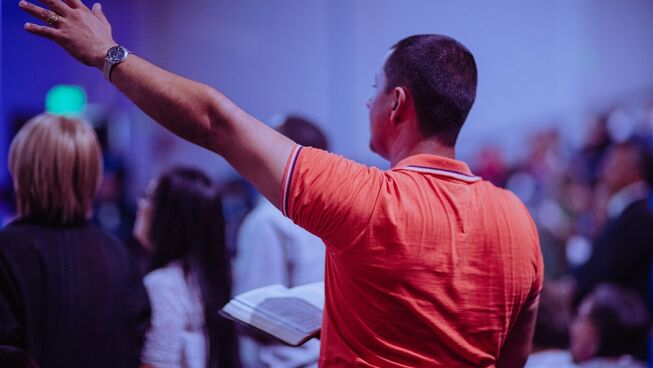The F word

The F word is one of the most misunderstood words in the religious arena. The F word is of course, 'faith'.
There are a group of modern atheists who claim that 'faith' the enemy of science and reason. Sam Harris defines faith as 'unjustified belief'. According to Richard Dawkins faith is 'blind trust, in the absence of evidence, even in the teeth of evidence'. AC Grayling goes even further to suggest that faith is a 'commitment to belief contrary to evidence and reason'.
These people claim to not have 'faith', they claim that atheism is not 'faith', but based on evidence and reason.
However these atheists have misunderstood faith. There is nothing wrong with faith. In fact we demonstrate 'faith' every day. Faith is not blind, it is a commitment. Faith often flows from evidence. Faith should not be set against evidence, for the two are not incompatible. We demonstrate faith when we cross the road based on the 'evidence' that there appears to be no vehicles ready to knock us down. We demonstrate 'faith' by sitting on a chair that according to our reason seems sturdy and unlikely to break. We put trust or commitments into these things BASED on the evidence, not contrary to it. This is reasonable faith.
The issue is not whether or not we have 'faith', because we all have faith. The real issue is the reasonableness of that faith. The type of faith these atheists have described is 'blind' faith. It is an unreasonable faith. Essentially they're saying that faith is a commitment to something that we know is just not true. This may be convenient for their own dismissal of religion, but it is not the faith of the Bible. The faith described in the Bible is a faith based on response to the action and activity of Jesus Christ. We are to have faith in Jesus, faith in his death on the cross and faith in his resurrection (look at 1 Corinthians 15:1-4). These are commitments based on evidence in the real world. The question then is not a question about 'faith', instead the question becomes, 'is there reasonable 'evidence' for me to put my faith in Jesus?'

